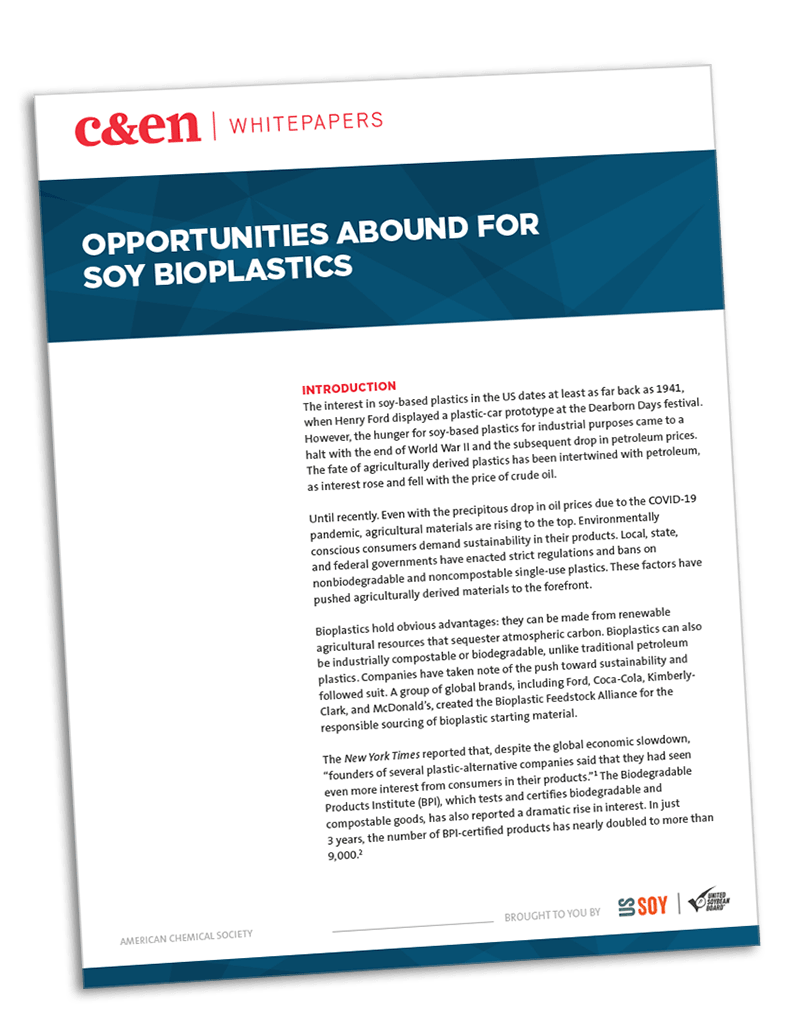Overview
Until recently, the fate of biobased plastics seemed intertwined with petroleum. Interest in them rose and fell with oil prices. Now, even with the precipitous drop in oil prices due to the COVID-19 pandemic, environmentally conscious consumers’ demand for sustainability, coupled with strict state and federal regulations and bans on non-biodegradable and non-compostable single-use plastics, have pushed agriculturally-derived materials to the forefront.
Plastics made from soy feedstocks hold many advantages for consumers. Soy is a renewable agricultural resource that sequesters atmospheric carbon. Bioplastics from soy, unlike traditional, petroleum plastics, can be synthesized to be industrially compostable or biodegradable. This whitepaper explores the many ways that soy can be used to create environmentally-friendly plastics.
Key Objectives:
- How agriculturally-derived plastics meet the needs of today’s consumers
- What compostable and biodegradable plastics made from plants are, and how they can be synthesized
- What the advantages are of bioplastics made from soy feedstocks
Brought to you by:


Please complete the form to download the white paper.
By submitting this form, you agree to the American Chemical Society (ACS Publications) emailing you more information on related products and services. ACS takes your privacy seriously. For more information, please see the ACS Privacy Policy .
Copyright © 2025 American Chemical Society | 1155 Sixteenth Street NW | Washington, DC 20036 | View our Privacy Policy
